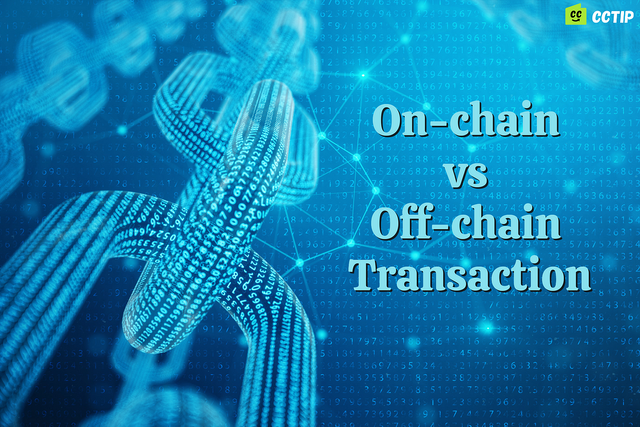Onchain vs Offchain
The terms "onchain" and "offchain" refer to different methods of processing and recording transactions in blockchain technology. Here is a detailed comparison of the two:
Onchain Transactions
Definition:
- Onchain transactions are those that occur on the blockchain and are recorded in the distributed ledger.
Transparency:
- All transactions are transparent and can be publicly verified.
Security:
- They benefit from the security features of the blockchain, such as immutability and cryptographic verification.
Cost:
- Generally more expensive due to transaction fees, which are required to pay miners or validators to process the transactions.
Speed:
- Slower because they require confirmation from multiple nodes in the network, which can take time depending on the blockchain's consensus mechanism.
Scalability:
- Limited scalability due to the capacity of the blockchain. The more transactions that need to be processed, the more congested the network can become.
Example Use Cases:
- High-value transfers, decentralized applications (DApps), and smart contracts that require high security and trust.
Offchain Transactions
Definition:
- Offchain transactions occur outside the blockchain and are not immediately recorded on the distributed ledger.
Transparency:
- Less transparent since transactions are not recorded on the blockchain until they are settled.
Security:
- May be less secure than onchain transactions because they rely on external mechanisms for security and trust.
Cost:
- Generally cheaper as they avoid transaction fees associated with blockchain miners or validators.
Speed:
- Faster because they do not require the same level of validation from the blockchain network.
Scalability:
- More scalable since they do not rely on the blockchain's limited transaction processing capacity.
Example Use Cases:
- Microtransactions, payment channels (like the Lightning Network for Bitcoin), and transactions within a closed ecosystem or between trusted parties.
Comparison Table
| Feature | Onchain Transactions | Offchain Transactions |
|---|---|---|
| Transparency | High (publicly verifiable) | Low (not immediately recorded) |
| Security | High (blockchain-based) | Variable (depends on external mechanisms) |
| Cost | Higher (transaction fees) | Lower (fewer fees) |
| Speed | Slower (requires confirmation) | Faster (immediate) |
| Scalability | Limited (network capacity) | Higher (not limited by blockchain) |
| Use Cases | High-value transfers, DApps | Microtransactions, payment channels |
In summary, onchain transactions offer higher security and transparency but are slower and more costly, making them suitable for high-value or high-security needs. Offchain transactions are faster and cheaper, making them ideal for scenarios where speed and cost are more critical than absolute security and transparency.

Congratulations, your post has been upvoted by @upex with a 0.19% upvote. We invite you to continue producing quality content and join our Discord community here. Keep up the good work! #upex